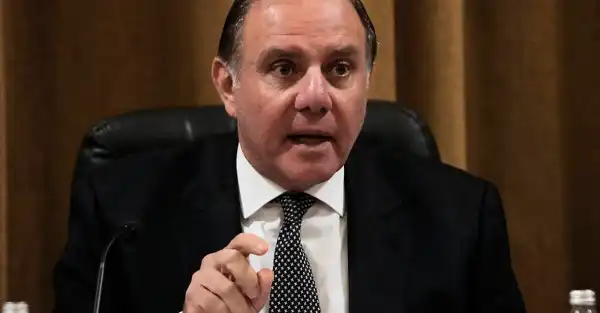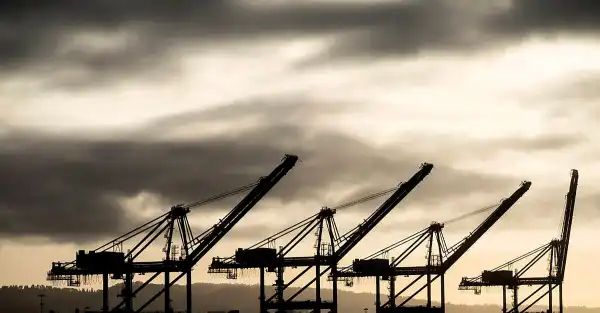
Faced with a political and institutional crisis at home, French President Emmanuel Macron, who lost control over the National Assembly as his coalition only obtained a relative majority in recent elections, is poised to embark on a series of international meetings.
Read the article in the original French here.
A busy agenda awaits the French leader in the coming days as he will attend the European Council summit from 23-24 June in Brussels, the G7 summit from 26-28 June in Berlin, and the NATO summit from 28-30 June in Madrid.
At home, however, the president is expected to take action on several urgent issues, starting with appointing the ministers who were defeated in the elections, a nomination that is expected “in the next few days”, explained government spokesperson Olivia Grégoire.
With Macron weakened domestically, some are wondering about the possible end of the “Macron era” at the EU and international levels.

Greek left picks up momentum and slams Macron’s neoliberal policies
Emmanuel Macron’s defeat in the second round of the French legislative elections is essentially a defeat of his neoliberal policies, former prime minister and main opposition leftist leader Alexis Tsipras has said.
“The defeat of Macron is a defeat of his …
Compromise
For example, according to Thierry Chopin, special adviser at the Jacques Delors Institute, “the result of the legislative elections affects the president’s European credibility in a relative way”.
As opposed to many EU member states, France is not so familiar with the concept of coalitions and “negotiated compromises”, said Chopin.
“It will take a long time to adapt and learn because this logic of compromise goes against the political culture of the Fifth Republic”, rooted in a vertical approach to governance, he added.
According to Chopin, the president will also have to deal with the “Euroscepticism” of Jean-Luc Mélenchon’s radical-left party La France Insoumise (LFI) and Marine Le Pen’s far-right Rassemblement National party – both of which are now the main opposition forces in the new National Assembly.
However, with foreign affairs still being within the institutional remit of the president, Chopin believes that “the legislative elections will not fundamentally impact France’s European agenda.”
‘France remains France’
But France remains an important country at the EU level despite the current political crisis it is traversing, particularly as it still holds the six-month rotating EU Council presidency – at least for a few more days.
“France’s position on the European stage is understood by all its partners. Emmanuel Macron enjoys strong credibility on the European scene, disconnected from his domestic position,” said a diplomatic source.
“I do not believe that Mr Macron is weakened. On the contrary, I expect that a number of allied European countries will help and support him,” said Noëlle Lenoir, Junior Minister for European Affairs from 2002 to 2004, told EURACTIV.
According to her, “the result of the legislative elections is alien to Europe”, which is instead focusing on the French rejecting the president’s personality and the “rise in populism”.
On EU matters, the French government does not seem so worried. “After the legislative elections, France’s commitment to Europe is unwavering,” said French EU Minister Clément Beaune on the sidelines of a General Affairs Council meeting.
The same was said by a source at the Elysée Palace, which even noted EU partners being curious about understanding the French electoral system rather than concerned “about France’s leadership strength on the international stage.”

Le Pen party makes breakthrough with most ever parliamentary seats
The far-right party Rassemblement National (RN) surprised all by winning more than 80 seats in the second round of legislative elections on Sunday (19 June), according to initial estimates.
And the opposition?
This is not the opinion of La France Insoumise MEP Manon Aubry, who also co-chairs the Left Group in the European Parliament.
The result of the legislative elections is “perceived by our European allies as a defeat,” she said.
The National Assembly’s new setup is reminiscent of what already exists in the European Parliament.
“Rather than turning to the left, Renew [the presidential party group in the European Parliament] has made a pact with the right and the far-right on more than one occasion, notably on the Fit for 55 climate package,” she told EURACTIV.
Aubry fears this new political reality could become systematic.
The same was said by members of Le Pen’s Rassemblement National.
“As much as we know that the Germans are used to coalitions, Europe knows that a relative majority in France is a real crisis,” said Rassemblement National MEP Thierry Mariani.
Macron in the EU
Time will tell whether the new political situation in France, which gives the opposition greater power and may call for compromises, will impact Macron’s position in the EU.
For example, when it comes to EU directives, of which France transposes only about 14% according to a recent report, national parliaments must give their ok to matters such as free trade agreements, partnership agreements and when it comes to welcoming a new country within the bloc.
Critical files like Macron’s proposal to revise EU treaties could also face blockage from a now strengthened opposition.
Against this backdrop, Macron may face growing criticism internationally just like he is currently at home, and the upcoming summits will reveal more on this front.
[Edited by Davide Basso, Daniel Eck]

French elections : final results, second round
Les électeurs français étaient invités à se présenter aux urnes les dimanche 12 et 19 juin pour élire la nouvelle Assemblée Nationale. EURACTIV France, en partenariat avec Europe Elects, vous offre en instantané les premières estimations ainsi que les résultats définitifs.
[Edited by Alice Taylor]
Source: euractiv.com



